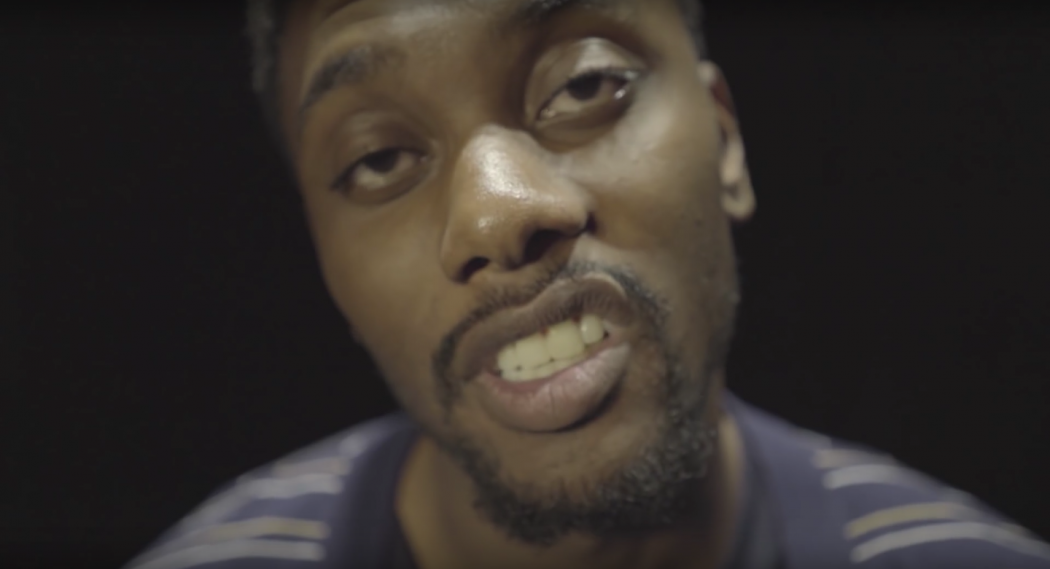“I think the role of art is very important in the movements happening around the nation right now. Although I may not be leading an organization, or putting together the protests, my work is essential in galvanizing people around an idea and initiating conversation.”
Nigga: A Monologue speaks for itself — and then some. A collaboration between Samson Awosan and Sean Avery, the spoken word piece comes alive with a blend of deliberately-paced poetry and performative interpretations of Avery’s words, as speechless actors fade in and out in ghostly fashion. It’s a macabre reckoning of its titular word’s contradictions, at once a centuries-old tool to diminish and relegate that’s also held up as an exotic totem of “gangster” success. And after screening at the Wisconsin Film Festival, Nigga: A Monologue will play on Fri, Apr 22 as part of #TheRealUW One Day Exhibition at the Chazen Museum of Art.
For “5 Questions,” I reached out to Avery, who’s also a UW First Wave Scholar and a musician:
1. You released this online the day it was decided that the officer in the Tamir Rice case would not be indicted. However appropriate, I’m guessing that wasn’t a coincidence?
The video had actually been done for a couple of weeks, maybe even a month or two, but I was waiting for the right moment to release it. I sent it to Upworthy but they wouldn’t take it, so I decided to post it on Buzzfeed myself on Dec. 25th actually. I had it up there for a few days but hadn’t shared the link yet, so it was effectively unreleased. Then the no indictment happened on the 28th, and I knew that was the right moment.
2. What was your and Samson’s process? Did you have your monologue written before introducing a cinematic element?
So the monologue was originally a poem I wrote in high school, which I also made a video for. I was extremely disappointed in the quality of both the poem and the video, so in my 4th year of college I began rewriting it as a monologue. Once I finished it I just saw so many images in my head, and I knew I had to make a video. I contacted Samson through a friend, and the first time we met up I shared all my ideas with him and we were on a roll. The shooting and editing took a while, but Samson and I were almost always on the same page in terms of our artistic choices.
3. The monologue itself is so prominent, so powerful. Your words are already confrontational and direct but now that confrontation is highlighted with the image. Now you’re looking at the camera, at the audience, at us. Given that you’re also a musician and a poet, how do you see the interplay between your words and the image?
I think words at their best capture images or ideas. The monologue by itself can only do so much. My goal with the distillations and choreography you see is to visually challenge you while audibly challenging you. Every shot in the film, every image you see, is connected to what I’m saying at that moment. Some of the images are abstract and some are more concrete, but all of them are meant to add layer of complexity to the piece as a whole.
4. The camera is focused on your face but there’s at least one moment where it tilts down to your hands.
As a performer, I gesture a lot, I’m always moving my hands. When we were shooting just me sitting in the chair, Samson said I was doing great things with my hands and the rest of my body as well, and he wanted to capture that. I also think that moment of the monologue deserves a break from my face on screen.
5. Black Lives Matter has done a lot to bring critical dialogues on injustices and inequalities to media and social powers that be, and not just concerning police violence. And just looking at Madison, conversations have sparked up through the Young Gifted and Black Coalition, First Wave leadership, #TheRealUW on social media, even the Frequency’s stance on booking hip-hop shows. How do you see your piece fitting into this critical conversation?
I’ve actually been thinking a lot about this question. I think the role of art is very important in the movements happening around the nation right now. Although I may not be leading an organization, or putting together the protests, my work is essential in galvanizing people around an idea and initiating conversation. I want Nigga: A Monologue to reignite or just ignite conversations on cultural appropriation, reclamation, Blackness as a performance, and the role language plays in both shaping and understanding identity. I feel that my piece encompasses a lot of what Black Lives Matter and #TheRealUW stand for. Although I did not make the film as a part of those movements, my mission is congruent with theirs. I think that’s evident in the fact that Nigga: A Monologue will be playing at #TheRealUW’s exhibition. I wasn’t a part of planning that, I was asked by the planners, and it made perfect sense to all of us.
- Nigga: A Monologue plays as part of the “Mad About Madison” program on Sat, Apr 16 at 11:00a at the Barrymore Theatre.

